“Because of their binding properties, lectins can cause nutrient deficiencies, disrupt digestion, and cause severe intestinal damage when consumed in excess by an individual with dysfunctional enzymes. These effects are followed by disruption of intestinal barrier integrity, which is the gateway to various autoimmunities.”
Aristo Vojdani. Lectins, agglutinins, and their roles in autoimmune reactivities. Altern Ther Health Med. 2015;21 Suppl 1:46-51. PMID: 25599185.
So, a few years ago the topic of lectins and whether lectins hurt your gut health seemingly popped up more frequently on the health scene. Little by little, that word made its way into various videos, articles, and podcasts I watched. Briefly, I looked into them, and didn’t like what I found!
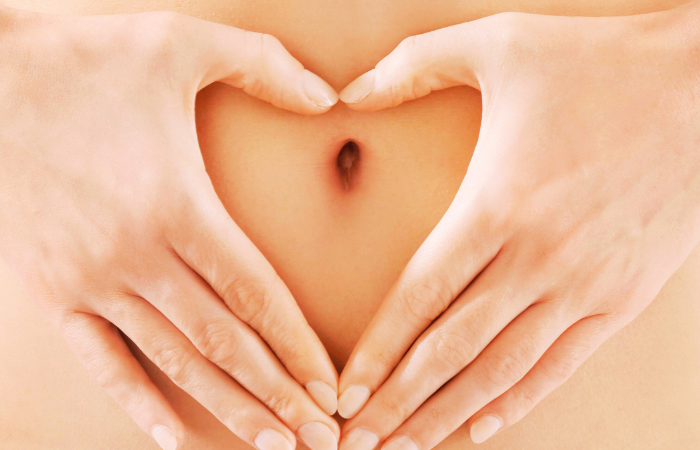
A lectin is defined as a protein that binds to carbohydrates. Interestingly, lectins are found in nearly all organisms! The majority of lectins produced by plants are toxic to animals and insects that eat them. Unfortunately, some are harmful to humans too. One well-known lectin is gluten.
Lectins, aka the antinutrient, inflame the gut when ingested. It affects people in different ways and to varying degrees. On the other hand, in my research, I came across information on how certain lectins are actually beneficial to our health. Interesting! These are not the lectins I am discussing today. I am talking about the harmful ones.
Disclaimer: This post contains affiliate links. If you use these links to make a purchase, I will earn a small commission at no additional cost to you. Read this Affiliate Disclosure for more information. Thank you.
Lectin Resistance

Honestly, at the time I had so much resistance to this idea. Once you read the lengthy list of foods that lectins are found in you’re like ‘f**k that‘ and run the other way, at least I did haha. Consequently, I couldn’t open my mind up to it and didn’t want to hear it. It was just too big of a rabbit hole to go down.
“Lectins are in nearly everything! There’s no point in trying to learn more about them, I’ll never be able to live like that! It would be way too much work, screw this!” I thought to myself. And so, that was that. I put down this idea of lectins for many more years. Until they found me later on down the road. The unfortunate thing of learning about health is, oftentimes, you are faced with s*it you really don’t want to hear!
Without a doubt, controversy surrounds lectins. Similar to how controversy swarms many things in the health & wellness world. Many argue that “there’s nothing to worry about, they’re fine, it’s all quackery” etc.. At the end of the day, use your judgment, use discernment, research yourself through reading the literature and studies, and see what you find. Unfortunately, the mainstream always likes to suppress the truth and run smear campaigns on those that speak out and go against the ‘norm’. A little something to consider. Ultimately, use your mind and come to your own conclusion 🙂
Let’s Get Into How Lectins Hurt Your Gut Health
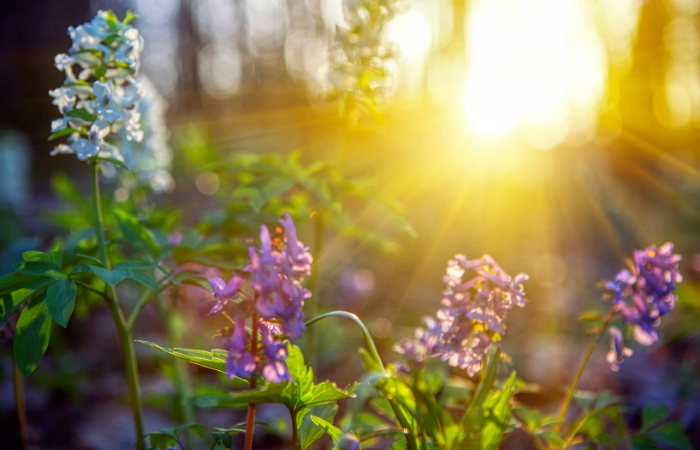
To begin, plants are quite intelligent, like everything else in nature, and don’t want to be eaten. Plants are conscious. Conscious in the sense that they are aware, as consciousness is commonly defined as. All organisms in nature; animals, plants, insects, and bacteria are aware of changes in their environment.
Accordingly, they will respond by changing their behavior. Thus, plants protect themselves from predators and threats in their environment. As a result, they produce lectins as a defense mechanism against insects, mold, diseases, animals, fungi, and us *humans*! A number of these lectins react negatively when ingested. Fortunately, not all plants produce lectins that harm us.
“As lectins are produced by a wide range of living organisms from microbes to mammals, they can be grouped according to their species of origin, such as algal lectins, fungal lectins, bacterial lectins, animal lectins, and plant lectins.” According to this 2019 paper, there is a whole lotta lectins out there! Within the ‘plant lectins’ category, lies a ton of lectins! Not everyone is toxic to humans, however, some are. Over 500 Types of plant lectins are identified!
There are two main classes of troublesome lectins for humans; Prolamin and Aglutinins. For example, gluten is a prolamin. Within these classes, are many proteins. These proteins are not all equal in their affect on us, some are worse than others. A few of these should be avoided whereas others are ok in small amounts and you don’t need to be as concerned with. Some of the ‘bad’ lectins are:
Are People More Sensitive To Lectins Now?
Indeed, we are increasingly more sensitive to lectins today. Lectins are the plants defense system against being eaten. We have a defense system against lectins hurting us in our guts; our mucous membranes and our gut microbiome. In fact, our body’s defense system to lectins, our gut, is under assault now more than ever.
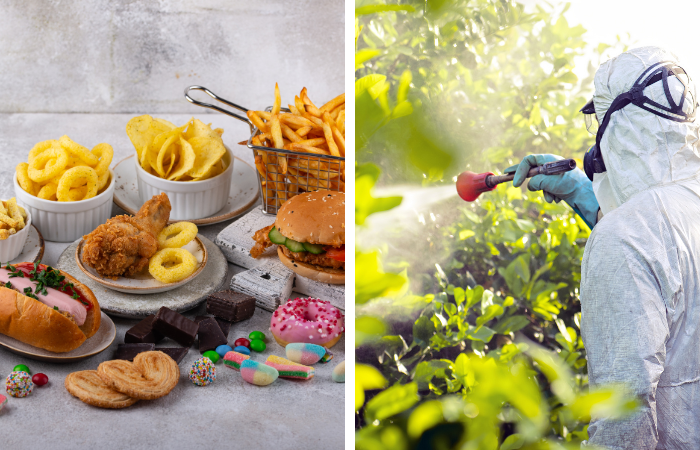
Definitely, the average person’s diet is full of ultra-processed, nutrient-deprived foods. Frankly, we eat a bunch of garbage, ‘food-like’ stuff haha. Full of sugar & chemicals and low on vitamins & minerals. What’s more, antibiotic use hurts our guts. Antibiotics are also found abundantly in most animal products (meat, milk, eggs) from large-scale animal agriculture operations. Remember, you eat what your food ate.
Moreover, Roundup, aka Glyphosate, the pesticide from Monsanto is in everything. Sadly, it contaminates so much of our food supply, unbeknownst to us. Basically, all of our conventional crops contain this poison.
Traditionally, various food preparation techniques protected us from lectins in our history. Fermentation was commonplace because there was no food storage system until the nineteenth century. This method detoxes lectins. Beans, some grains, and legumes were soaked in water, and changed frequently, for at least 24 hours. Afterward, they are cooked for a good length of time, reducing lectins. Pressure cooking was popular and great for getting rid of lectins too. Many of these are still practiced in many cultures around the world today, but not so much in certain developed countries… 😉
Symptoms Of Eating Lectins On Your Gut
Surely, lectins hurt your gut health in numerous ways. One way is they resist breaking down in our guts, in turn, this causes harmful effects on our digestion. You know how every so often you hear stories of people having severe reactions from eating raw or undercooked kidney beans? Well, those are from phytohaemagglutinin, a type of lectin! These lectins hurt your gut tremendously!
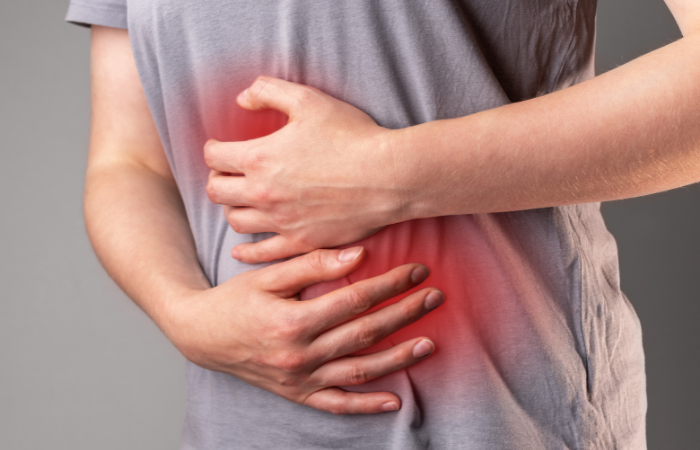
In addition to hurting our gut microbiome, lectins also interfere with nutrient absorption. Specifically, the minerals calcium, iron, phosphorus, and zinc are affected! Lectins bind to cells lining the digestive tract. Consequently, they disrupt the breakdown and absorption of nutrients. Additionally, lectins affect the growth and action of the intestinal flora. Some negative digestion symptoms are:
- Constipation
- Diarrhea
- Gas
- Bloating
- Nausea
- Low energy
- Weight gain
Other health symptoms this antinutrient may cause/contribute to:
- May contribute to Parkinson’s Disease
- Insulin Resistance
- Depression
- Anxiety
- Inflammation (linked to Heart Disease, Dementia and Arthritis)
- Other inflammatory conditions (IBS, Diabetes, Rheumatoid Arthritis, and Celiac)
A Pioneer of Lectins
Surely, it’s impossible to write about lectins and not mention Dr. Steven Gundry MD. This man brings lectins, and how lectins hurt your gut health, to the forefront. His extensive work and research in this area continuously revolutionizes the world of gut health and overall health.
“Hippocrates, the father of modern medicine, had described the body’s ability to heal itself, which he called ‘veriditas’ (green life force). He believed that the physician’s job was to identify which forces were keeping the patient from healing himself and then remove them.”
Dr. Steven R. Gundry
In the past, he worked as a heart and cardiothoracic surgeon. For over 40 years he’s worked in medicine. Nowadays, he is still a practicing physician in his clinic. However, he instead teaches people how to avoid surgery and reverse disease through nutrition. For in-depth information on lectins, and more, look him up! He’s on YouTube, Spotify, and has some websites. Additionally, is the author of several books; The Plant Paradox, The Longevity Paradox: How to Die Young at a Ripe Old Age, The Energy Paradox, several cookbooks, and much more.
What Foods Contain Lectins?
First off, I want to make one thing clear: avoiding lectins altogether is nearly impossible! Even Dr. Gundry mentions this. They’re everywhere and if you did try to avoid it completely, life would be ridiculously stressful, in my opinion. Simply, do the best you can. Lectin-avoidance rather than lectin-free is more realistic. Minimize them when possible. As always, do the best you can 😉
Lectins appear in just about everything we eat, it’s wild. This harmful plant compound is in:
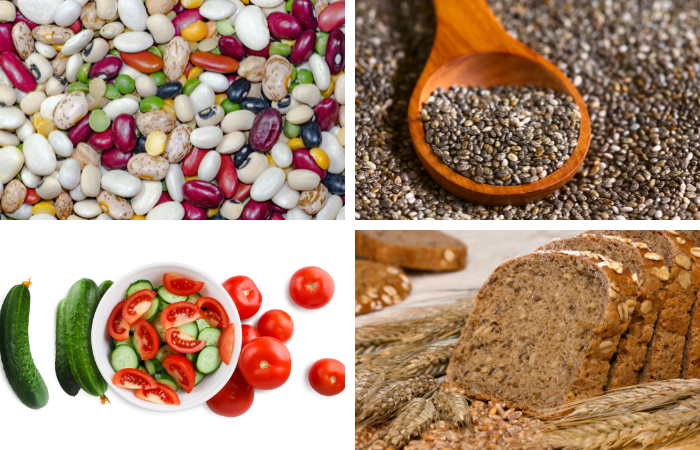
- Legumes- beans, peanuts(are a bean, not a nut), lentils, peas.
- Grains- oats(this was a tough one!), brown rice, wheat, barley, quinoa, corn, rye.
- Nightshade Fruits & Vegetables- tomatoes, potatoes, cucumbers, bell peppers. I never understood how people had allergies to nightshades, and now it all makes sense.
- Squash- pumpkin, zucchini, butternut.
- Some Nuts and Seeds- Cashews, chia seeds, pumpkin seeds, sunflower seeds, unblanched almonds
Ultimately, this leaves us with what? air to eat?? Haha, kidding. But for real, what the heck do you eat?!
What You Can Do->Substitute
Without a doubt, substituting and swapping is the way to start. For instance, one easy swap is to substitute brown rice for white rice-pressure-cooked is best. I know, crazy as it may sound, you did read that right! Dr. Steven Gundry says that Asian cultures known to have long, healthy lifespans eat lots of white rice. “How come four billion people go through the trouble of taking the hull out of brown rice to make their white rice? It’s because the hull has all the nasty lectins,” he states. Makes sense to me!
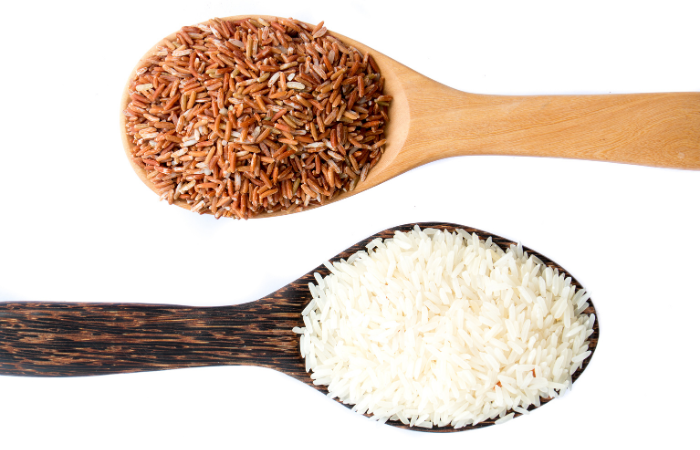
With this is mind, if you can’t give up grains, or when you have no other choice, then choose refined, white grains over whole grains. Pick white rice over brown rice. Don’t eat whole wheat bread, find the healthiest white bread you can. Definitely, this is a**-backwards over what we think of as healthy, haha! It’s hard for me to wrap my mind around too. Luckily, I found this tasty little bread made with coconut flour instead of white flour. Thus, my bread alternative is taken care of!
- Swap-> For many of the grains such as oats and quinoa, substitute sorghum or millet instead. I made millet “oats” and they were delicious.
- Swap-> Potatoes are easily swapped for other root vegetables such as turnips, jicama and sweet potato.
- Swap->Peanut butter for walnut, blanched almond, hazelnut, tahini, or pistachio butter.
- Swap-> Rice and pasta for miracle (shirataki) noodles and rice, millet, sorghum, cauliflower, spiralized vegetable “noodles”
- Swap-> Conventional flours for coconut, blanched almond, arrowroot, cassava, hazelnut, millet, or sweet potato flours.
What You Can Do->Food Preparation/Cooking Methods
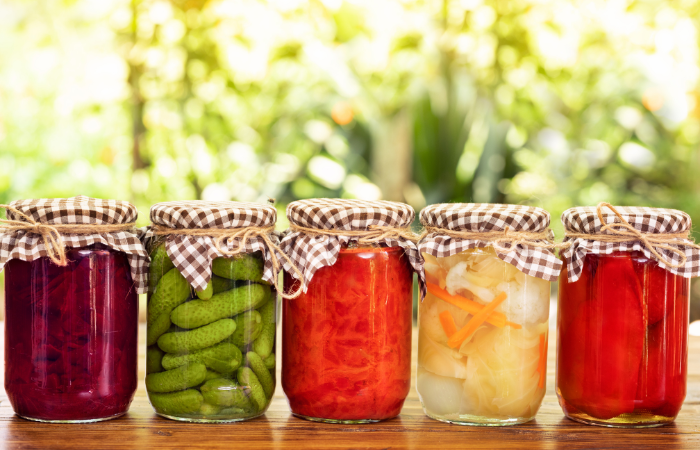
There’s ways we can prepare our food that drastically lower the lectin content, many of which have been used for centuries! Such is the case with soaking, sprouting, and fermenting. These methods have been around for a long time in our history, and in many cultures around the world, for a reason. Whether they knew exactly why there were soaking or not, they were lowering the lectin content. Soak legumes in water, change frequently every 4-5 hours, for at least 24 hours.
What is more, sprouting, aka germination, aids in making foods more digestible. Studies suggest that sprouting may reduce the phytic acid, a lectin, by up to 81%! Fermenting allows good bacteria to break down lectins and other damaging substances in plants. For example, the fermented versions of soy-tempeh and miso-are much healthier than tofu.
By pressure cooking (the instant pot) nightshades and legumes, such as beans, you remove the majority of the lectins. Other cooking methods are less effective for removing lectins, like boiling and slow-cooking. Unfortunately, pressure cooking grains doesn’t have the same effect, you can’t remove lectins this way. To reduce even more lectins, soak your legumes before pressure cooking.
What You Can Do->Minimize
Surely, it’s almost impossible to avoid lectins altogether. Fortunately there’s ways to minimize lectins in the normal foods you eat! For instance, with many fruits like tomatoes, cucumbers, peppers, & squash-yes these are technically fruits!-most of the lectins are in the peels and seeds. Therefore, peeling and deseeding removes much of the lectins! Bam! That takes care of that!
Italian brands of tomatoes and pasta sauces are peeled and de-seeded already! Further, the Eden brand of beans actually pressure cooks their beans, so nearly all the lectins are gone!
Since lectins surround us, you just can’t catch them all. Lectin protective supplements are hitting the market to protect your gut from the damage of lectins. Simply, take them on those days when you can’t avoid lectins. There’s a few quality ones I have looked into, and will buy one of them soon; Lectin Protect by Supreme Nutrition and Lectin Shield by Gundry MD. Without a doubt, there are times when you have to eat lectins or go hungry. These supplements will be life-savers!
One of my all-time favorite things to take for my gut health I write about in this post! Truly, it’s something I believe everyone should take! Read to find out more.
Final Thoughts
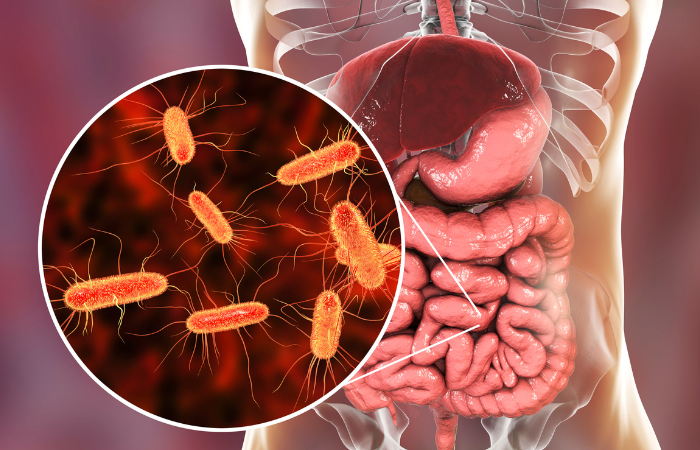
In the end, lectins hurt your gut. Our tolerance to lectins largely depends on the state of our gut health. The healthier our guts are, the better our defense mechanisms are against lectins. Thus, allowing us to more easily tolerate them.
Fun fact, the first defense we have against lectins is our mucous and saliva. Next, is our stomach acid, which aids with digesting lectins. Then, our gut bacteria comes to our defense. When we have lots of good gut bacteria, they help consume lectins. Finally, our intestinal walls defend against lectins. So, we have some natural defenses. Due to consumption of excessive amounts of lectins, these defenses get compromised and weaken over-time. The more we can minimize our lectin intake, the better off we are.
Dr. Gundry’s protocol, which I haven’t done personally, consists of eliminating lectin foods for a period of time to heal the gut. After, when the gut is strong and healthy, then slowly re-introducing some lectin foods to see how well they are tolerated. While simultaneously, still minimizing, substituting and using cooking/preparation methods to reduce lectins. If this is something you want to learn more about, check out his website for more info.
In my case, I’m very slowly transitioning my diet as I learn and am not in a huge rush. Truthfully, I find it difficult and am simply doing the best I can. Thereby, I focus on one meal at a time. Preparing myself to minimize more lectins in the future. But I am not there yet. An instant pot is on my list, and there are other swaps I want to make etc..
Latest Posts
- What Grief Has Taught Me
- Unique Gift Ideas For The Spiritual Person In Your Life
- Healthy Chocolate Pudding Recipe
- My Weird Everyday Health Habits
- 6 Easy Ways To Enter The Present Moment
Sources:
https://pubmed.ncbi.nlm.nih.gov/25599185/
https://www.ncbi.nlm.nih.gov/pmc/articles/PMC7115788/
https://www.ncbi.nlm.nih.gov/pmc/articles/PMC3945755/
https://www.ncbi.nlm.nih.gov/pmc/articles/PMC9146949/
https://gundryhealth.com/the-role-of-dietary-lectins/
https://pubmed.ncbi.nlm.nih.gov/6822324/
https://pubmed.ncbi.nlm.nih.gov/33745091/
https://gundryhealth.com/leaky-gut/
https://gundryhealth.com/leaky-gut-and-its-connection-to-autoimmune-diseases/
https://www.nature.com/articles/s41531-018-0066-0
https://pubmed.ncbi.nlm.nih.gov/27814523/
https://pubmed.ncbi.nlm.nih.gov/24026569/
https://gundrymd.com/lectin-toxicity/
https://www.healthline.com/nutrition/sprouted-grains#antinutrients






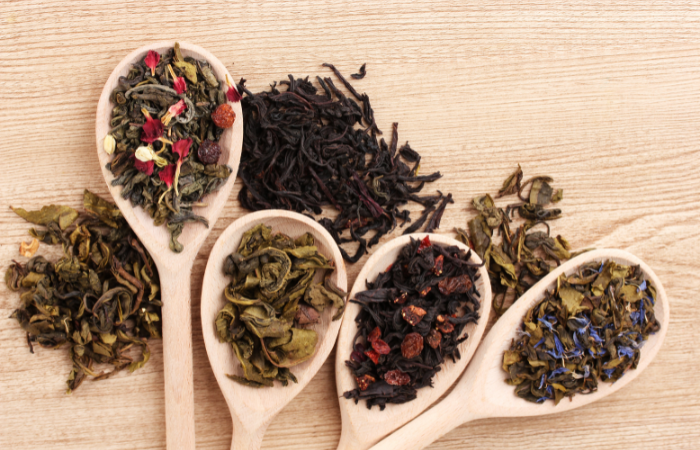
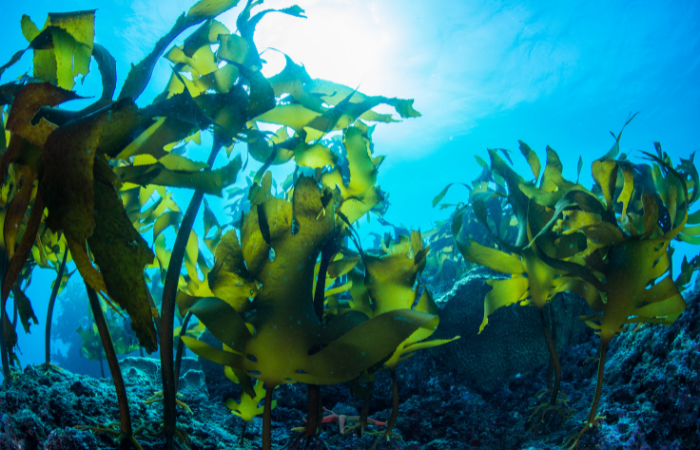
I could never give up my carbs, so I’ll probably still consume lectins. But I will try to moderate my intake!
I try to eat as healthily as possible but I had never heard of lectins before. I guess I’m fortunate as so far I haven’t noticed any sensitivity to them.
I am glad that these are not hurting my gut health. I already have food allergies so I would starve if I eliminated more foods.
I honestly had no idea what this was until I read your post. It’s really interesting and good to know too. We always want to do what’s best for our gut.
Like other commenters, I did not know what a lectin was at all before visiting this post. I do want to try some of the swap out mentioned in this informative post.
Oh this is super interesting. Gut health is so important and definitely something we all need to focus on more!
So interesting! I’d never heard anything about lectins before, this is really helpful information to have.
It seems like it would do us all a lot of good to cut lectins down and out of our diets!
I’ve found out so many new and important things about lectins! I am doing my best now to avoid them!
I didn’t realize that this could hurt my gut. I will have to moderate my carb intake. Thanks for sharing this with us.
This was a really interesting post! I learned a lot! I definitely think it’s important to watch what you put into your body. I hear some people say “It doesn’t matter. We’re all gonna die anyway”. That baffles me. I’m not the best at taking care of my health but I’m still doing my best, because I would rather leave this world healthy than I a hospital with tubes in me because I wasn’t looking after my health. Chance happens to all and I can still end up in the hospital when I’m old, but I can at least say that I tried to take care of myself. Thankyou for this post and keep inspiring healthy living!
I absolutely agree! If you invest in your health that will you give a better quality of life! Health is wealth in my opinion, and I too, would rather leave this world healthy than sickly and in a hospital bed! Keep on taking care of yourself too!!
I didn’t know anything about this. This is a really great and very informative post! Thanks for sharing this with us
Such an interesting post! I’ve never heard of sensitivity to lectins! Thank you so much for sharing it!
I often eat food that are high with lectins. Thank you for sharing this post. I will try to be more careful since eating large amount can certainly hurt our gut health.
Have you ever heard if lectins could cause lip/mouth numbness or burning mouth syndrome?
I haven’t came across a connection with those symptoms and lectins so far. If I do, I will let you know 🙂
This is a very informative post. Thank you for sharing on this topic. 😊
Pastor Natalie (Examine This Moment)
Letstakeamoment.com
Your article on lectins and gut health is informative and well-researched. It’s great to have clear explanations and evidence-based insights. Keep up the good work in simplifying complex health topics for your readers’ benefit! 🌱🍏📚
Thank so much, I have so much fun doing it 🙂
since we are vegetarians who do need lentils and beans for our protein i don’t think we can swap those, but then we are also white rice eaters so i think that balances it out:)
definitely learned so much in this post so will keep this in mind for future
You definitely need beans and lentils as vegetarians! No need to swap those, using certain preparation methods such as soaking and pressure cooking help to reduce the lectins in them 🙂
I have never heard about anything like this before! It was helpful to have the information you provided. Your sharing of it is greatly appreciated.
I can see how any lectin protein can wreck havoc on your gut. Eating it if you are allergic will cause an allergic reaction. I remember when my youngest son wasn’t gaining any weight. He was tested for gluten intolerance and a few other things. Luckily, they didn’t find anything and put him on a medication for loose stools for a bit. He was finally able to gain weight and no longer have any issues.
This was a very thorough post on lectins. Thanks so much for the information!